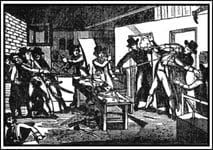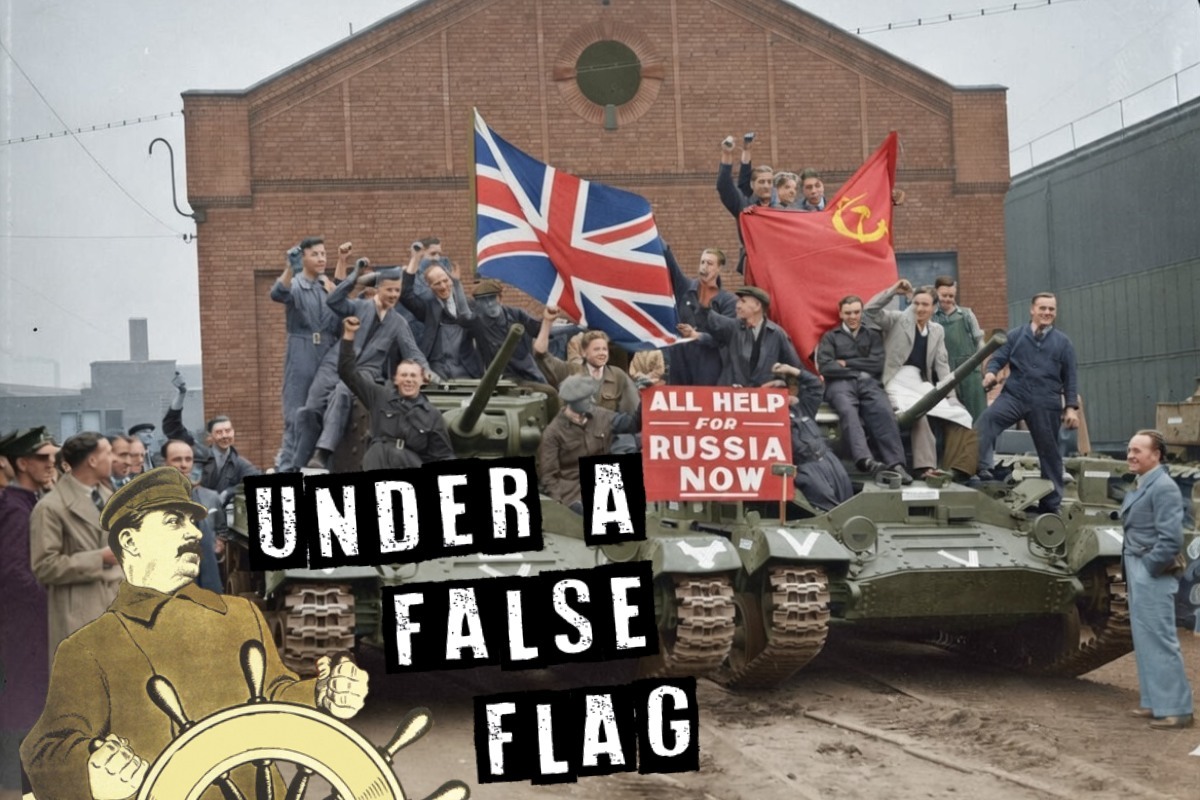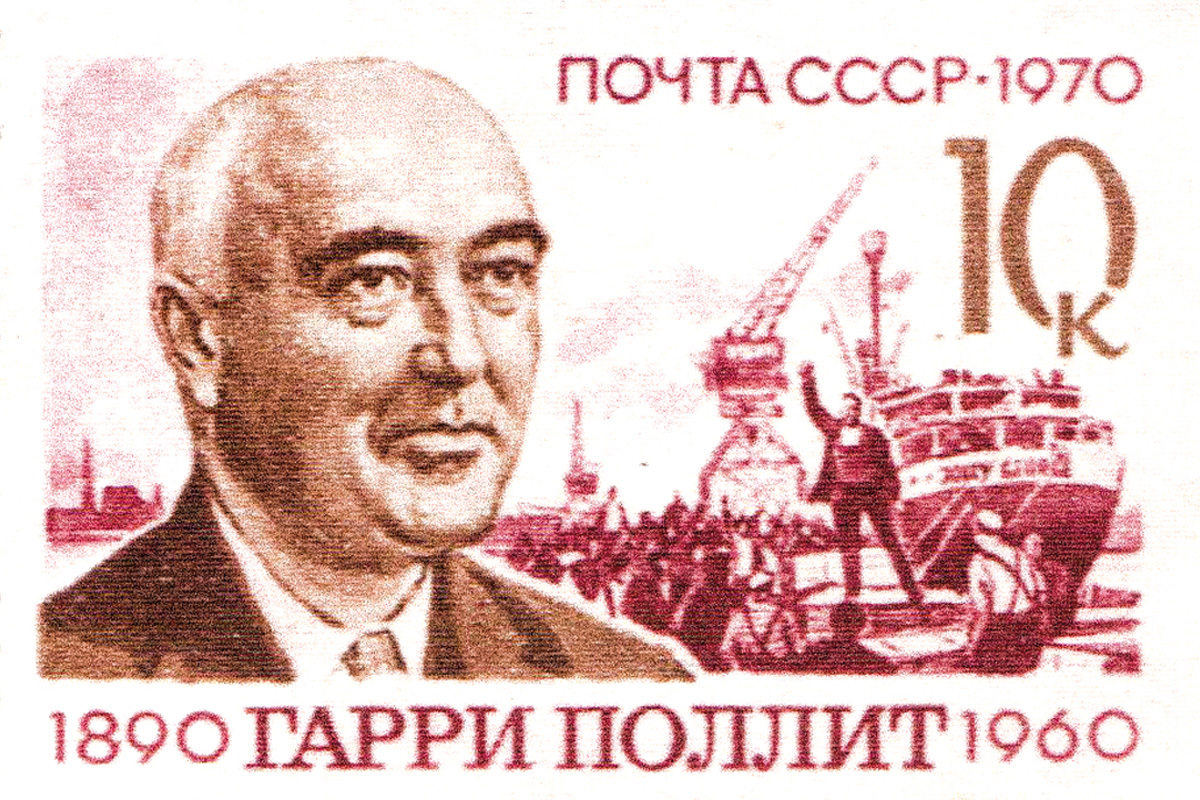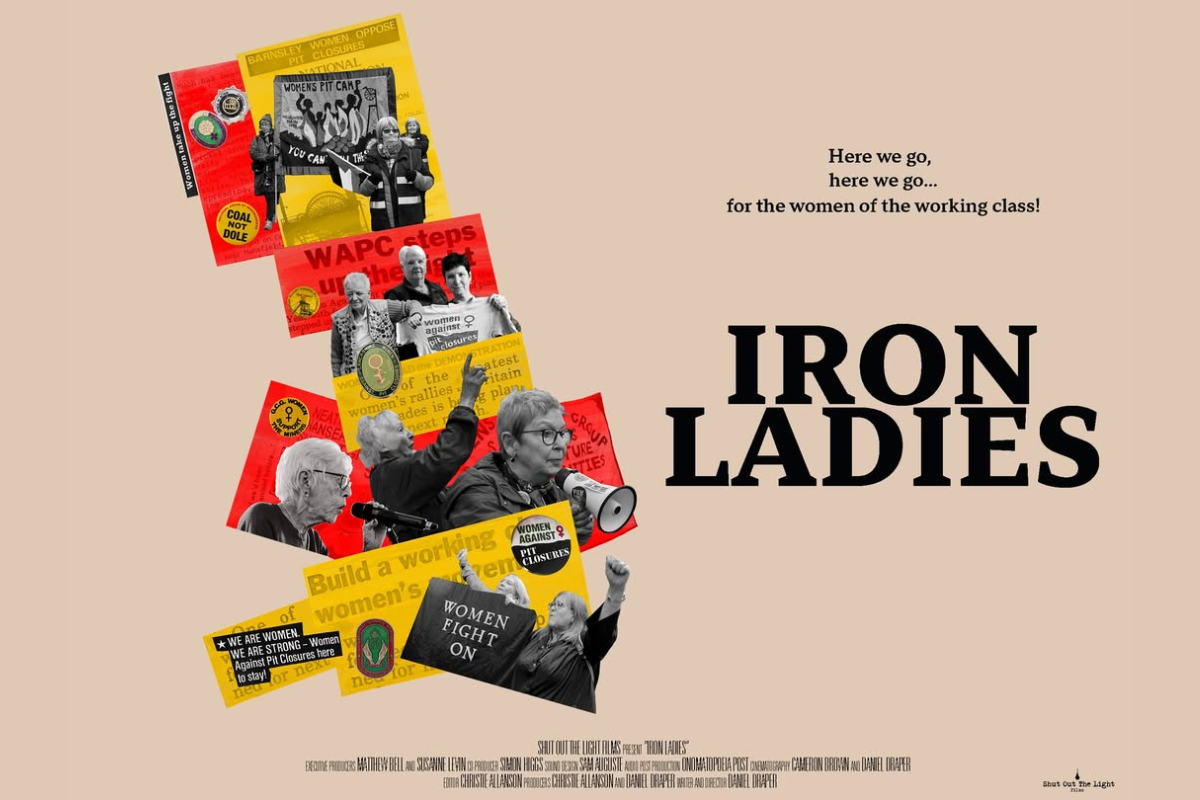Those who do not learn from the mistakes of history are
doomed to repeat them. For this reason, socialists take the study of the past
struggles of working people very seriously. We seek to apply the lessons that
have been learned from the past to the ongoing and inevitable conflicts across
the globe between the interests of capitalism and those of wider society, be
they workers, peasants, small traders, the unemployed, the old, the vulnerable
and the weak.
In 1820 six men, convicted of treason, were publicly hanged
and then beheaded outside Newgate Prison in the City of London. The crime of
which they had been convicted was plotting to assassinate the entire Cabinet as
it sat enjoying a working dinner. This attempt at a violent coup d’etat is now
largely forgotten, tucked away as a footnote in the history books. It deserves
to be better known.
In 1815 at the Battle of Waterloo the forces supporting
Napoleon had finally been defeated but at an enormous cost. Tens of thousands
of British men had been killed or seriously injured. Tens of thousands of
others who had fought and somehow survived found that far from Britain being
the better, freer, more secure country they had been promised, what they came
back to was economic depression and the same grinding poverty which had
afflicted their parents and the generations before them. Inevitably, the
experience caused them to ask serious questions about the nature of the
economic and political system under which they lived.
As so often happens after war, the economy went into sharp
recession with the collapse of orders for military and naval equipment and
munitions. Jobs disappeared as a result. Wages were forced down while prices
and taxes rose. Yet there were many fat cats who had clearly done very well out
of the wars which had gone on almost continuously for over twenty years.
The heavy industries, particularly dependent on war demand,
were the hardest hit. Iron, for example, fell from £20 a ton to just £8. In
Shropshire, one of the cradles of industrialisation, 24 out of 34 blast
furnaces went out of production causing thousands of ironworkers and colliers
to be thrown out of work. Raging inflation blighted the lives of ordinary
people as the price of stable necessities spiralled out of reach of their
pockets. The burden of taxation was severe as the government tried to payoff
the debts it had incurred in the war effort, much of which had been
incompetently handled.
Political power
In the situation there was a ready audience for those
radicals who argued that the hardships facing working people and their families
were because they were excluded from political power. Radical agitators and
publicists demanding political reform, and in particular a widening of the franchise,
elicited an unprecedented response from the common people which sent alarm
bells ringing among the ruling class of the time.
Political power was in the hands of a tiny minority of
society, a ruling class composed of rich landowners, bankers and merchants and
some wealthy industrialists. By no means without antagonisms among themselves,
they were, however, at one in their determination not to surrender one iota of
political power to those they regarded as the ignorant, swinish and unwashed
masses.
Nevertheless the British ruling class was feeling jittery
and insecure. The successful uprising of the American colonists and the more
recent events in revolutionary France had demonstrated how ordinary people
could be a force for enormous change. Their actions had raised thoughts and
expectations in Britain about liberty and justice, not as abstract ideals but
as means by which they could gain some control over their lives and set about
tackling the desperate conditions which were their everyday experience.
Their readiness to act is shown by, among other things,
bread riots in 1795, machine wrecking (especially in the East Midlands) in 1811
and 1812 and ongoing years, and riots provoked by the introduction of the Corn
Laws in 1815. These laws were a piece of naked class legislation designed
solely to benefit Britain’s large country landowners. Their effect was to
inflate the price of bread and even the industrialists hated them because they
caused workers to demand increased wages. The extent of opposition to the Corn
Laws is shown by the fact that protests occurred in places as far apart as
Bideford, Birmingham, Bridport, Bury, Ely, Glasgow, Merthyr Tydfil, Preston and
the West Riding of Yorkshire.
Although these events may have been immediately spurred by
hunger and a sense of outrage about official callousness, they were
increasingly being combined with demands for political reform. Experience is
the best teacher and experience was demonstrating that the answer to the
justifiable demands of the working class could only lie with a decisive change
in the nature of political power.
The only answer of the ruling class to this political
ferment was repression. Habeas Corpus, the legal challenge to arbitrary
imprisonment, was suspended in 1794 and again in 1817. In 1819 what were
derisively known as the "Gagging Acts" were passed. These prohibited
most large political meetings; gave magistrates sweeping powers to enter
private premises in the search for arms; prohibited drilling and military
training by civilians; strengthened the laws against "blasphemous and
seditious libel", i.e. criticism of the government; limited the time
available for a prisoner to prepare their defence in a court case and increased
the stamp duty on newspapers and cheap pamphlets, thereby deliberately hitting
the radical press.
The government intercepted and opened the mail of known
radicals and made widespread and systematic use of provocative agents and spies
who were infiltrated into the radical movement. They therefore had a well-honed
intelligence system. Spies gathered evidence that was admissible in court while
provocative agents set up situations in which the participants were likely to
be caught red-handed. A particularly notorious case was that of "Oliver
the Spy" who infiltrated the Luddite movement in 1817 and whose activities
caused several machine-breakers to go to the scaffold.
The poet Shelley, sympathetic to radical causes, wrote in
1817: "…so soon as the whole nation lifted up its voice for parliamentary
reform, spies went forth. These were selected from the most worthless and
infamous of mankind, and dispersed among the multitude of famished and
illiterate labourers. It was their business, if they found no discontent, to
create it. It was their business to find victims, no matter whether right or
wrong."
"Orator Hunt"
On 16th August 1819 a huge political protest meeting
gathered in St Peter’s Fields, Manchester, to be addressed by "Orator
Hunt", perhaps the most persuasive of the radical speakers. A huge crowd,
possibly as many as 80,000, squeezed into the restricted space available. The
crowd contained many women and some children. When Hunt was about to start
speaking, he was arrested and the angry response of the crowd caused the
magistrate in attendance to panic. He read the Riot Act, which required the
crowd to disperse, and when they did not respond, he called up the yeomanry, a
middle class mounted militia.
They rode into the crowd, hacking indiscriminately left and
right with their sabres and exacting a terrible toll. 11 were killed and about
400 injured, of whom many were women. This event has of course gone down in
history as the "Peterloo Massacre". It was evidence of what the
authorities would do when faced with a situation that frightened them. The
unleashing of this ferocious state violence did much to widen support for the
idea of radical reform among many who had previously been unconvinced.
There was no radical political party as such, nor a cohesive
national movement. There were organisations with impressive names such as the
Hampden Clubs and the Society of Spencean Philanthropists which brought
together some middle class elements, mainly intellectuals and small businessmen
with substantial numbers of skilled and often self-educated craftsmen such as
printers and shoemakers, for example. Skilled workers in trades threatened by
technical innovation such as the hand-loom weavers, were at the forefront of
the movement in the textile manufacturing districts.
The political education and the organisational and speaking skills
of the radicals gave them an influence out of proportion to their actual
numbers. Few of them thought that violence was the way to achieve their
objectives. They mostly believed in peaceful persuasion, in the common sense
and reasonableness of their arguments.
An example of radical oratory was this from Henry Hunt
addressing a huge open-air meeting in London in 1816: "What was the cause
of the want on employment? Taxation. What was the cause of taxation?
Corruption. It was corruption that had enabled them to wage that bloody war at
the expense of all but themselves. Was not our loaf taxed? Was not everything
we ate, drank, wore, and even said, taxed? These taxes were imposed by a tiny
minority who thought nothing of oppressing the people and subsisting on the
plunder wrung from their miseries."
Disaffected elements
This was all good rabble rousing stuff but it was not enough
for some disaffected elements among the radicals. It was especially not enough
for Arthur Thistlewood. He was a natural maverick who had been in France at the
height of the revolution there. His experiences led him to combine a desire for
root-and-branch political change with a number of personal grievances that made
him greatly embittered. He became convinced that it was futile to think that
peaceful persuasion would make the ruling class surrender substantial elements
of political power to the working and middle classes. This analysis in itself
was of course correct but not in the sense that Thistlewood understood it.






